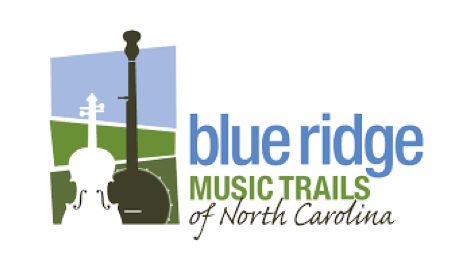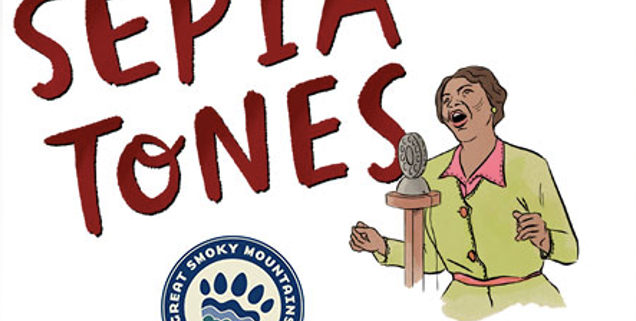‘Smoky Mountain Air’ podcast releases new episode of ‘Sepia Tones’ exploring Black sacred music traditions in Appalachia
Released February 17, a brand-new episode of “Sepia Tones: Exploring Black Appalachian Music,” titled “Sacred and Spiritual Music in the Mountains,” finds hosts Dr. William Turner and Dr. Ted Olson in a spirited conversation with special guests Dr. Kathy Bullock and Rev. Dr. Virgil Wood.
Dr. Bullock is an arranger, choral conductor, pianist, and Professor Emerita of Music at Berea College in Kentucky specializing in gospel music, spirituals, and classical works by composers of the African diaspora. Dr. Wood is a longtime church leader, educator, and civil rights activist who, among many other accomplishments, helped found the Southern Christian Leadership Conference alongside the organization’s first president, Dr. Martin Luther King Jr.
“We’re talking about the power of music here . . . when we think of the Black community, particularly in Appalachia,” said Bullock, “the power of music to heal, support, encourage, uplift, inspire, connect.”
Dr. Bullock’s lively and spontaneous performances flow throughout the episode and illustrate examples and connections as the guests discuss the African American traditions of spiritual music, gospel, and the unique revival of shape note singing in 20th-century Appalachia. In many cases, music from sacred traditions and communities also became anthems that propelled those struggling in the civil rights movement.
“What was so beautiful is that, in our church and sacred tradition, they talked about the trials . . . but there was always hope,” said Dr. Bullock. “Even if they were talking about the struggles, the pains, or the joys of life.”
In East Tennessee, the Highlander Folk School also played a particularly important role in supporting some of the most prominent activists of the civil rights movement.
“Rosa Parks had been at Highlander two weeks before she decided not to give up that seat,” said Rev. Dr. Wood, “And that’s where she really shaped her own sole resilience. There’s no way to tell the story of the civil rights movement without always remembering Highlander Folk School.”
Music featured in the podcast episode includes:
- “John Henry” performed by Amythyst Kiah and Roy Andrade from GSMA’s album Big Bend Killing
- “Come and Go” performed by the Berea Black Music Ensemble at the Berea College Celebration of Traditional Music, 2014, Berea Sound Archive
- “I Have a Friend Above All Others” performed by the Bethlehem Kings Quartet, 1949, Berea Sound Archive
- “Swing Low” performed by Mount Sinai Spirituals at the Berea College Celebration of Traditional Music, 2015, Berea Sound Archive
- “Jesus Is a Rock in a Weary Land” performed by members of the Holiness Church by Faith in Ozark, AL, 1968, recorded by Richard H. Tallmadge, Berea Sound Archive
- “Precious Lord” performed by Nat Reese at the Berea College Celebration of Traditional Music,1991, Berea Sound Archive
- “Amazing Grace” performed by the Wiregrass Sacred Harp Singers during the Symposium of Rural Hymnody at Berea College, 1979, Berea Sound Archive
Co-hosted by noted African American studies scholar Dr. William Turner and East Tennessee State University Appalachian studies professor Dr. Ted Olson, the latest “Sepia Tones” release builds on earlier podcasts uncovering the many early musical influences brought to the region by enslaved Africans centuries ago and the often-overlooked contributions of Black artists in the development of contemporary Appalachian music.
“Sepia Tones” is funded through the African American Experiences in the Smokies project in collaboration with Great Smoky Mountains National Park. It is distributed through GSMA’s existing podcast, “Smoky Mountain Air,” and available through Apple, Google, Spotify, Stitcher, and most other major streaming services. The third episode of the miniseries can be found here.
Great Smoky Mountains Association is a nonprofit organization dedicated to supporting the scientific, historical, and interpretive activities of the Great Smoky Mountains National Park by providing educational products and services to park visitors. GSMA depends on the generous support of its members to fulfill its mission, preserving the Smokies for generations to come. Membership-driven funding also supports the preservation of more than 90 historic structures throughout the park, as well as the backcountry rangers who protect more than 800 miles of trails to spectacular mountain vistas, rushing streams, waterfalls, and quiet groves of old-growth forest. For more information about GSMA, visit smokiesinformation.org.








